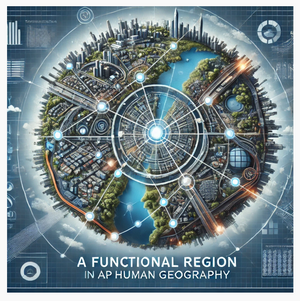Understanding Social Implications in AP Human Geography
In AP Human Geography, social implications refer to the effects that human activities, policies, and societal structures have on communities and cultures. These implications can be seen in population movements, urban development, economic activities, and environmental policies.
Understanding social implications is essential for grasping how different societies interact, evolve, and respond to global changes. This article will explore the definitions, examples, and impacts of social implications while addressing key AP Human Geography concepts.
What Are Social Implications?
Social implications are the consequences that social structures, policies, and interactions have on individuals and communities. These implications can be positive or negative, influencing various aspects of life, including economic opportunities, cultural integration, and social cohesion.
Examples of Social Implications in AP Human Geography
-
Migration and Population Changes – Migration patterns affect urbanization, job markets, and cultural diversity in regions.
-
Urbanization and Housing – Growth of cities influences social structures, transportation, and housing affordability.
-
Technology and Connectivity – Advances in communication alter societal relationships and economic opportunities.
-
Environmental Policies – Climate action influences social justice and accessibility to resources.
-
Globalization and Cultural Exchange – The spread of cultures impacts traditions, language, and societal norms.
Key Social Factors in AP Human Geography
Several social factors play a role in shaping communities and regions. Some major ones include:
-
Social Class and Economic Inequality – Differences in income and resources affect quality of life.
-
Education and Literacy Rates – Higher education levels contribute to economic growth and stability.
-
Healthcare Access – Availability of healthcare influences life expectancy and overall well-being.
-
Cultural Identity and Ethnicity – Diverse societies experience shifts in traditions and cultural expressions.
-
Political Systems and Policies – Government decisions can either strengthen or weaken social cohesion.
The Impact of Social Implications on Human Geography
1. Urbanization and Social Structure
Urbanization has led to significant changes in society. As people move from rural to urban areas, they encounter different economic opportunities and social structures. However, challenges such as overcrowding, inequality, and limited resources often arise.
2. Social Implications of Migration
Migration, whether voluntary or forced, brings both opportunities and challenges. It can lead to cultural blending and economic growth, but also tensions due to differences in language, customs, and competition for jobs.
3. The Role of Globalization
Globalization has increased interconnectedness across the world. While it allows for cultural exchange and economic expansion, it also leads to social conflicts, exploitation, and loss of indigenous traditions.
4. Environmental and Social Implications
Climate change and environmental degradation impact societies by influencing migration, job availability, and living conditions. Governments must address these concerns to ensure sustainable growth.
Common Questions About Social Implications in AP Human Geography
1. What Are Social Implications?
Social implications refer to the effects of human activities on society, including economic, cultural, and political influences.
2. What Are Social Factors in AP Human Geography?
Social factors include population changes, education, healthcare access, economic stability, cultural identity, and political structures.
3. What Is an Example of a Sociofact in AP Human Geography?
A sociofact is a social construct that influences human behavior. Examples include religious institutions, family structures, and government systems.
4. What Are the Negative Social Implications?
Negative social implications include income inequality, discrimination, limited access to education and healthcare, urban poverty, and environmental degradation.
Final Thoughts on Social Implications in AP Human Geography
Social implications are crucial to understanding how human interactions shape societies and geographical landscapes. From urbanization and migration to globalization and environmental concerns, these factors impact everyday life and future developments.
By grasping the social implications in AP Human Geography, students can better analyze real-world scenarios, predict future trends, and contribute to meaningful solutions.




